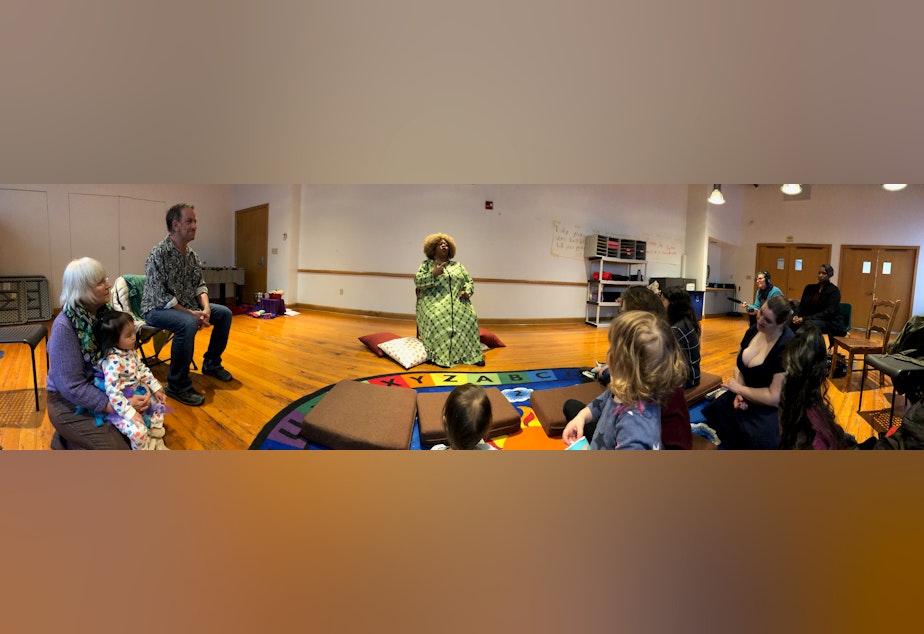Seattle's independent cultural workers brace for pain as COVID-19 closures hit

Last week Seattle artist Susie Lee and her colleagues were planning to open the first-ever performance festivals for babies and toddlers in April.
The COVID-19 pandemic changed those plans.
“There was no real whining,” Lee says about her decision to postpone indefinitely. “It was just like, ‘OK, we think you’re doing the responsible thing.’”
Lee wasn’t depending on festival revenues to pay her bills this spring, but for some of her fellow artists, the income was part of the patchwork they need to stitch together to survive in Seattle.
Governor Inslee’s decision to restrict public gatherings had an immediate impact on the region’s live performance venues; all of them shut down productions indefinitely and laid off everyone from the artists to the backstage crews.
“We are the original gig workers,” says Jennifer Bacon, president of Local 15 of the International Alliance of Theatrical Stage Employees, IATSE.
Bacon represents 1,000 stagehands, lighting and sound technicians who work everywhere from the 5th Avenue Theatre to industry conventions.
Sponsored
Even though employers pay into a benefit fund for these workers, IATSE members have to work a set number of hours each month to qualify. And if you’re not scheduled to work, you’re not going to qualify, Bacon says.
IATSE, the union that represents professional actors, and other labor leaders have called on politicians to extend full health and unemployment benefits to all arts and cultural workers. Bacon also wants to do away with the mandatory wait period before benefits kick in, and she’d like unemployment payouts to cover 100% of lost wages.
Beyond the immediate situation, though, Bacon is concerned about what happens after the crisis dies down. Stagehands---and all independent performing artists—depend on the local cultural organizations for work. If these nonprofits don't make it through the pandemic themselves, employment opportunities will be gone for good.
Artists like Susie Lee do think about that worst case scenario, but she's too busy to dwell on the future for long. She’s raising a 2-year-old daughter on her own.
“Every day the screw tightens a little further,” Lee said. “I have to be as normal and regular as I can for my kid. And maybe sacrifice a little of my own sanity.”




